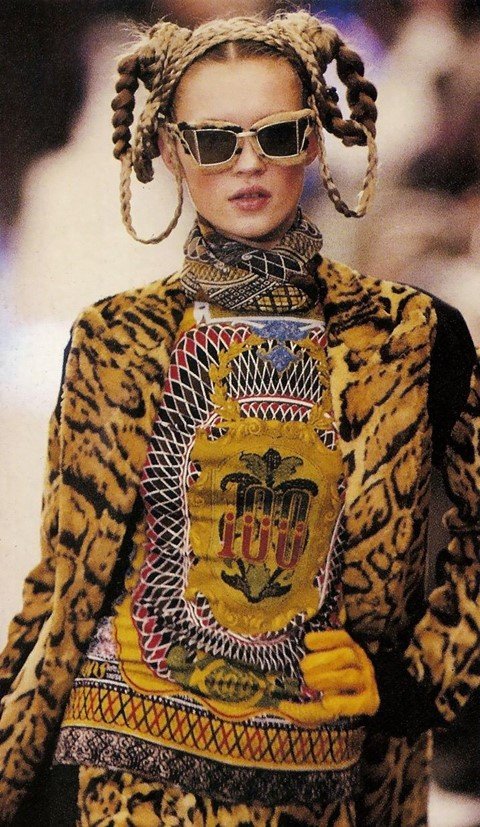Why do we return to the archive?
Jean Paul Gaultier, 1990s
In the last few years, archival fashion—careful curations of vintage garments, accessories, and handbags sourced from estate sales, inherited from grandparents, secret finds in unexpected places—has become increasingly popular, particularly among young people. The tie between politics and fashion is undeniable. As political trends shift rightward, costs of living increase, nations grow volatile, democracies unravel, young people locate their resistance, and consequently, their hope, in what art makes possible—revisiting decades past in search of inspiration, sorcery, and redemption.
Kate Moss for Jean Paul Gaultier, 1994
The archive offers a reprieve from the everyday, a mode of quiet resistance. Archival fashion represents something beyond the garment itself: it captures moments in time more possible than where we are now. The archive is self-care, the ability to present yourself to the world however you choose, to lean into whimsy and imagination. It outlives any one moment in time—it is a tool, irrefutably, of dissent. It jolts us, galvanizes us into action when we are made inert by quotidian horrors, offering escape in much the same way as literature or music.
Vivienne Westwood, Ready-to-Wear, Fall 1993
Vivienne Westwood, FW 1994
In a world which is becoming increasingly unequal, which rewards only the ultra-wealthy and relegates to the margins everyday people, teaching us to abandon joy in favor of profit and ambition; the archive serves as a reminder of those interstitial moments in history where art—creative outlets—were used to push forward movements, to engender meaningful social change. And true craftsmanship is rapidly facing extinction. It is startlingly clear in the media we consume, which at best, is uninspired, and at worse, proselytizes the aims of a waning empire. It is clear, too, in the proliferation of fast fashion platforms, in spite of the industry’s contributions to the looming climate crisis. The archive, then, reminds us to retrieve meaning from what has already been created, to satiate ourselves with less, to preserve rather than continually produce.



